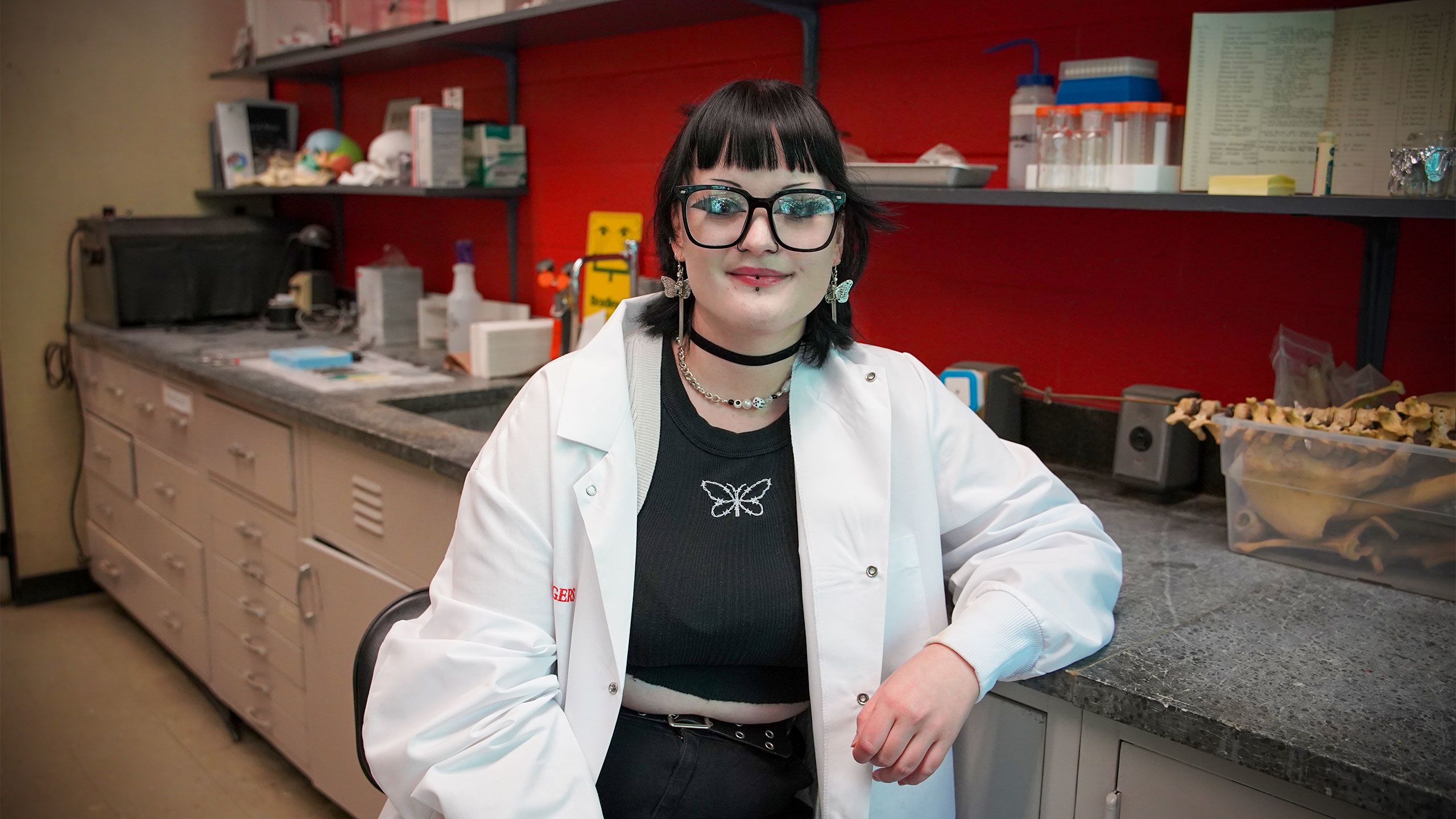For Forensics Master's Recipient, Graduation is Not Goodbye
Kyra Miller will join the staff at Rutgers–Camden, helping students forge pathways in STEM fields

Students in the Rutgers University–Camden master of science in forensic science (MSFS) program often reference the “CSI effect.” Through the magic of television and its plethora of crime-drama programming, people believe they know what forensic scientists do.
Recent MSFS graduate Kyra Miller GSC’24 described just a part of the bigger picture. “TV doesn’t show that there’s so much behind the scenes—and after the scenes—that goes into the field,” she said. “When you take part in this program, you see all the things that are possible.” Miller has built an award-winning research portfolio and secured a full-time position at Rutgers–Camden as a program coordinator, where, after graduation, she will empower students to discover possibilities in STEM.
Miller, who has loved the sciences since elementary school, discovered forensics as crime shows saturated the TV airwaves in the mid-2010s. She later earned an undergraduate degree in criminal justice with a concentration in forensic science at California University of Pennsylvania but believed her training was not comprehensive enough to support a future in the profession.
“That's what brought me to Rutgers–Camden: Its forensic science program is strong,” Miller said. “The school was conveniently located for me, because I live in Philadelphia, but this is the first university where I saw a path forward.”
Kimberlee Moran, director of the forensics graduate program, asked Miller if she would be interested in exploring independent research with the Philadelphia Arch Street Project. Since 2017, Moran has helped lead efforts to excavate hundreds of remains discovered at a construction site and properly bury them at a historic cemetery.
Miller’s work tested for the yellow fever virus, which ravaged the Philadelphia area in the 1790s, using dental pulp found at the site. She explained that dental pulp, the innermost layer of the tooth containing nerves and blood vessels, had been used in previous studies to detect blood and viral proteins. While the test did not indicate the presence of yellow fever, its methods showed potential for future studies. Her work earned first place at this year’s inaugural Graduate Research and Creative Work Symposium.
Moran said Miller epitomizes the Rutgers–Camden spirit. “She has challenged herself, worked hard, overcome obstacles, and made the most of every opportunity,” Moran said. “Her can-do attitude and her willingness to give back have been a recipe for success. She has also shown that mixing subjects and skills in unconventional ways is a strength. I can’t wait to see her grow into her career.”
“That's what brought me to Rutgers–Camden: Its forensic science program is strong. The school was conveniently located for me, because I live in Philadelphia, but this is the first university where I saw a path forward.”


Kimberlee Moran, associate teaching professor of forensic science
Kimberlee Moran, associate teaching professor of forensic science

Image courtesy Kyra Miller
Image courtesy Kyra Miller
On top of her studies, Miller became an active participant in Rutgers–Camden campus life. She found a position working for the Graduate School, where she helped fellow students and assisted with recruiting and marketing initiatives. She also joined the Graduate Student Organization as its treasurer and later established the Rutgers–Camden chapter of Delta Delta Epsilon, an international forensic science honor society. She credits her extracurricular involvement with transforming her perception of higher education.
“Once I began to be involved at Rutgers–Camden, my experience was just so much better,” Miller said. “As a graduate student, you feel a lot less isolated. Learning about different opportunities on campus helped make my sense of community a lot stronger.”
The graduate will remain on campus after commencement, leveraging her science background and Rutgers knowledge at the Institute for Empowering Equitable Education in STEM (E3). As program coordinator, she will support E3 in fostering a culture of inclusivity on campus and attracting more diverse student talent to STEM fields.
Having represented Rutgers–Camden at graduate admissions events, a summer forensic science seminar at the Mütter Museum, and conferences for her research, Miller is more than ready for her new position. For Miller, it’s also personal.
“I'm so grateful for all the opportunities I've gotten,” Miller said. “I am excited to give back to the community that's given so much to me.”



Design: Douglas Shelton
Photography: Christina Lynn
